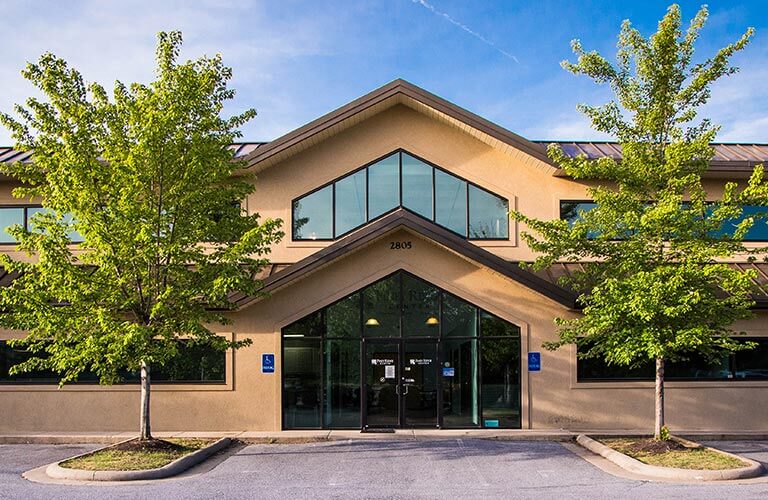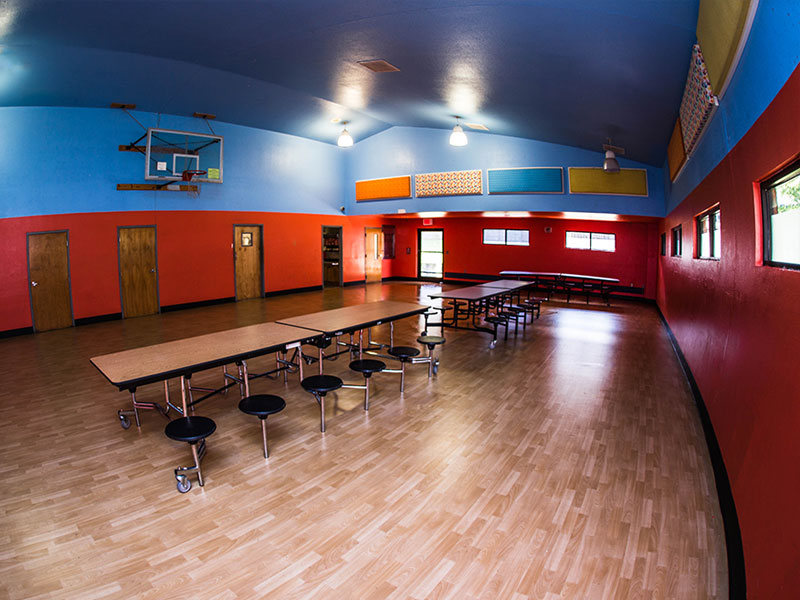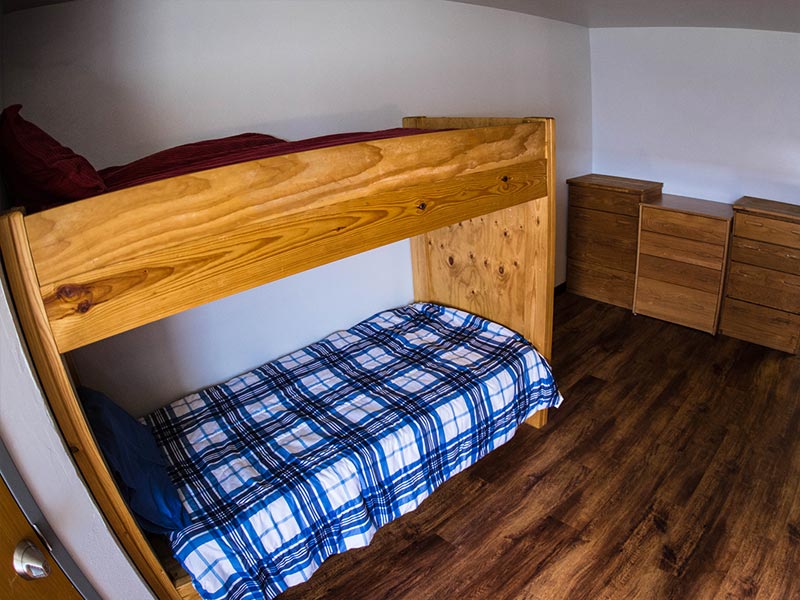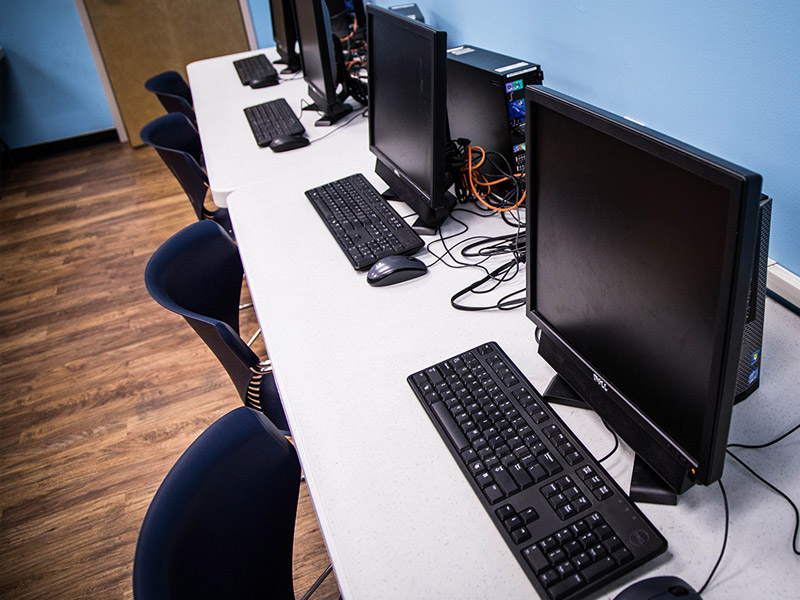Piney Ridge Treatment Center helps children & adolescents struggling with ADHD build a strong foundation for long-term recovery. Located in Fayetteville, AR, Piney Ridge is the leading provider of ADHD treatment.
ADHD Treatment
Learn more about ADHD treatment at Piney Ridge Treatment Center in Fayetteville, Arkansas
If your child or teen is struggling with ADHD, you are probably well aware of the problems it is causing in his or her daily life. You may have to ask many times for chores to be completed only to then find that he or she has forgotten or became distracted and did not do them. It may be a daily battle to get school assignments done on time or to get them done at all. You may find that your child is frustrated by his or her condition and has turned to drugs or alcohol as a means of self-medicating the problems, only worsening your frustration and concern. You may feel like you are screaming at a wall each time you confront your child with a concern or a request. The anger he or she displays may be frightening to you and your family. You may feel at the end of your proverbial rope and unsure of what to do next.
Life with a child who has ADHD does not have to be so hard. At Piney Ridge, our multidisciplinary team of experts has much experience dealing with children who are suffering from ADHD and sexually maladaptive behaviors. Through our residential treatment program, we have helped countless children just like yours learn the life skills they need to be successful and move past the sexually maladaptive behaviors and ADHD symptoms they struggle with in order to learn how to lead a normal, healthy life.
How to Help a Loved One
Helping a loved one get treatment for ADHD
Life with a child who has ADHD is not easy for the child or teen or for the parent. You may feel like your life is overruled by the challenges of this behavioral disorder, and you might not know exactly how to help your child recover. Your child may have been misdiagnosed, or you may not know what the behaviors he or she exhibits are a result of. Here are some common signs that a child or teen has attention-deficit/hyperactivity disorder:
- Trouble concentrating and being easily distracted
- Appears not to listen when directly spoken to
- Becomes easily bored and frustrated
- Has a quick temper and is easily angered
- May be unable to sit still, even during dinner
- Often loses important things such as schoolwork
- Inability to control emotions or impulses
- May become thoughtlessly aggressive with others
If you think your child has ADHD, it’s important that early treatment is begun so that you and your family can begin to heal. Here are some steps you can take to begin to help your child or teen:
- Open a conversation about what you’ve noticed using “I” statements
- Avoid pointing the finger and being accusatory of your child – he or she is not misbehaving; this is a symptom of the disorder
- Make an appointment with your doctor or a child therapist who specializes in ADHD for a comprehensive evaluation
- Look into proper treatment options for the disorder and make appointments with residential facilities that treat this disorder
Why Consider Treatment
Why consider treatment for ADHD at Piney Ridge Treatment Center in Fayetteville, Arkansas
If you have ADHD and have for a long while, you may feel like a total failure: you can’t keep up with your schoolwork, you’re always losing your stuff, and your parents are always yelling at you. Your self-esteem may have plummeted as you labeled yourself a “bad kid,” even though none of it is your fault. Nobody pretends to have ADHD so they can get out of normal daily life. You may find that making – and keeping – friends is a particularly hard thing to do – your social skills may not be as well-developed as your friends’, and this can make it hard to form lasting relationships. You may have turned to drugs or alcohol to “forget” about your problems only to realize that by doing so, you are causing greater problems in your life. But life doesn’t have to be so hard.
A residential program that has decades of experience in treating children and teens who have ADHD and sexually maladaptive behaviors has been shown to be one of the most effective ways in which a person can learn the skills needed to be successful in life. You will spend a good deal of time living away from home, away from the stresses of your daily life so that you can focus your energy upon what matters most – healing. With the right combination of medications, therapies, and other support, you will learn the skills you need to create the life you want.
Our Philosophy
Piney Ridge Treatment Center philosophy and benefits
At Piney Ridge Center, we’ve helped children and teens struggling with ADHD and sexually maladaptive behaviors for nearly 20 years. Sexual thoughts and behaviors are normally an intimate part of our lives, but for children and teens who have engaged in sexual misconduct, we must discuss this openly and honestly in order to reshape future sexual behaviors. We offer children and teens who come to us an individualized approach, making sure that we incorporate all needs into the treatment plan so that our clients are able to make positive changes in their lives and become productive members of society.
Types of Treatment
Types of ADHD treatment offered at Piney Ridge Treatment Center in Fayetteville, Arkansas
When each child or teen comes to us for care, we conduct a thorough examination in order to best understand their needs. The medical examination will test for any drugs or alcohol in the system and ensure there are no comorbid medical disorders that require treatment. Our psychiatric evaluation will help determine the severity of ADHD, obtain a better understanding of the sexually maladaptive behaviors exhibited, and test for any co-occurring, comorbid mental health disorders. We will then take the results of these evaluations and work with the client and family to create a plan of care for his or her stay with us.
Medication may be used to help treat your ADHD or other co-occurring disorders, such as depression or bipolar disorder. Our clinical staff will thoroughly evaluate all medication usage and efficacy and make adjustments as needed.
Individual therapy is held at least once per week – more as needed – and will allow you one-on-one time to talk with your therapist about the troubles you are having in your life. You will be able to get to the root of your sexually maladaptive behaviors and discuss ways in which you can make changes for the better. You will also get the chance to work through the issues you are having with your ADHD in a private setting.
Group therapy is held each day and covers a wide variety of topics. Groups are a great chance for you to bond and work through your troubles with peers who are similarly struggling. Group topics may range from sexual safety, anger management, empathy training, and family skills.
Family therapy is held either every week or every other week and family visitation is held three times a week. During family therapy, we will work to address issues in the family dynamic, educate your loved ones about ADHD, and teach them ways they can support you after you leave our program. We will also allow your loved ones the chance to openly discuss ways in which ADHD and sexual behaviors have impacted their lives.
In addition to the standard therapeutic methods Piney Ridge Treatment Center offers, we also provide a variety of other therapeutic modalities designed to treat the whole person. These may include:
- School-based services
- Activity therapy
- Spiritual guidance
- Experiential therapies
- Recreation
Continuing Care
Continuing care and levels of treatment for ADHD
As the time for your discharge approaches, our staff will offer much case management to ensure that you are able to leave our doors with an aftercare plan that meets all of your needs. We will help you properly transfer into other independent living situations, such as college or the military, or provide services for transitioning into lower levels of care. Some clients find a less restrictive environment may be appropriate to continue their recovery and opt to discharge to a partial hospitalization program (PHP) or an intensive outpatient program (IOP), which will allow you to focus on your recovery during the day while slowly transitioning back to the community. Others may have made enough progress and feel that they are ready to discharge to home with referrals to traditional outpatient therapy and community resources.



